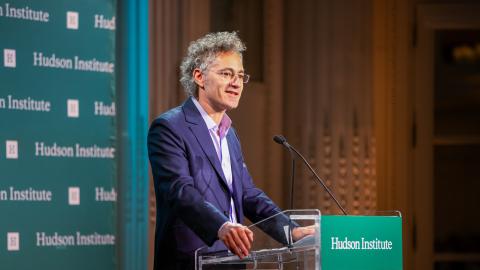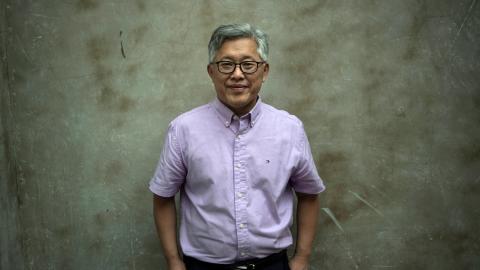Last weekend, China’s Foreign Minister Wang Yi used the august platform of the UN General Assembly to urge countries to treat each other and their social and political systems as equal.
As it turns out, the speech was superbly timed from Beijing’s point of view as it came just a day before authorities in China’s Special Administrative Region of Hong Kong authorities used tear gas and rubber bullets against those protesting against proposals that would allow only candidates approved by a mainly pro-Beijing committee of 1200 people to run in the inaugural 2017 direct elections.
The message is clear. How Beijing chooses to run its territories, whether they are provinces, SARs or autonomous regions such as Xinjiang or Tibet is up to Beijing. Under general principles of international politics where non-interference in the domestic affairs of another country is the rule of thumb, China can assert that prerogative. Beijing may even be correct that it has every legal right under Hong Kong’s Basic Law — effectively the constitution — to run direct elections in Hong Kong any way it chooses. Nevertheless, the reasons put forward by Beijing why it denies political freedoms to those under its jurisdiction that seek it are far less convincing.
And encouraging authorities to take a hard line on Hong Kong will damage the Chinese Communist Party’s core objective of peaceful integration of Taiwan with the mainland.
Let’s begin with the argument frequently put forward by CCP officials, including President Xi Jinping and his predecessor Hu Jintao, that Confucian cultures are inherently unsuited to Western-style democratic societies. This is an argument once promulgated by Singapore’s first prime minister, Lee Kuan Yew, and even has found star-quality support from Hong Kong-born film actor Jackie Chan, who said as much in various speeches and interviews since 2009 when he first announced himself as a fan of this cultural theory in a speech to the Boao Forum.
Even if the CCP legitimately spoke for all Confucian cultures, despite the party’s founder Mao Zedong having the cherished aim of eliminating all traces of Confucianism from Chinese society when he founded the People’s Republic of China in 1949, its case would still be weak as the empirical evidence clearly says something different. Japanese and South Korean societies have strong Confucian characteristics and are thriving liberal democracies.
Of the so-called Han Chinese societies, Taiwan is a bustling and entrenched liberal democracy of more than 23 million people.
Most people in Hong Kong evidently want to choose their preferred leader, which is precisely why Beijing is trying so hard to defy the popular will for a genuinely democratically elected candidate and to fix the outcome of the 2017 elections. Even Singapore, so long the model of a successful authoritarian Confucian society for China, is making unmistakable progress towards genuinely free and fair elections.
What about the practical and economic reasons put forward for why China’s version of “consultative” rather than “direct” democracy works better for Chinese societies? It could be that authoritarian politics can be an advantage for poor countries at the bottom end of the economic industrialisation and modernisation scale since a relatively small group of leaders can ram through policies geared towards rapid development. Of course, this assumes a country has — as China was fortunate to have since Deng Xiaoping — a number of competent leaders to take the reins. Such a system worked less well when men like Mao were in charge.
But Hong Kong has already escaped the middle-income trap, while every high-income economy in Asia and the world (with the exception of several oil-rich Middle Eastern states) have strong liberal-democratic institutions. Hong Kong thrives as one of Asia’s advanced economies because the hand of government has a light touch. It is the financial gateway in and out of mainland China because it operates under the rule of law in a system that allows courts to be independent of government and immune to the direction or whim of the executive. If China’s June white paper for Hong Kong — which insists that judges be “patriots” to the mainland — is any guide, Beijing’s vision undermines rather than reinforces the pre-existing conditions for success in Hong Kong. The institutional flavour of Hong Kong and what has made it economically successful is democratic rather than authoritarian.
Finally, there is another territory under China’s “one country, two systems” principle. Taiwan is the renegade province as far as Beijing is concerned. But it is also democratic, self-governing, has its own military and foreign policy, and functions gloriously as a genuinely independent, prosperous and dynamic de facto nation-state.
Taiwanese know the only reason they are not under Beijing’s formal control is that China is not able to successfully put troops on Taiwanese soil even if the People’s Liberation Army gains air and sea control over the Taiwan Strait. Many Taiwanese expect that they will be “integrated” into the mainland eventually but will refuse to do so unless their way of life is secured and guaranteed. Any indication that Beijing cannot tolerate a liberal-democratic entity within its territories — as evidenced by its stance towards Hong Kong — will only strengthen the determination of Taiwan to maintain its de facto independence.
Beijing has the raw power to do what it wants in Hong Kong. But as a country seeking to offer its credentials as a legitimate and constructive leader in the region, it needs to behave wisely and well.





















